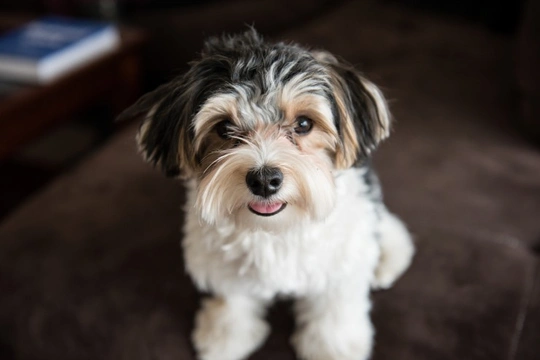
Should you leave a new puppy with a pet sitter?
Acquiring a new puppy is so delightful, and no doubt you will treat it like another baby, with lots of cuddles, kisses and care. Being taken from their mothers at an early age, they have to be settled into their new home and environment and as owners, you will be the focal point of their lives.
It’s certainly not easy, so everything you can do to settle your pup at an early stage will help them get over the wrench of losing their mum (for which you will be the substitute) and their pals in the form of their brothers and sisters. Very soon, they start searching you out when they want to play or need comfort.
Most people would not want to leave their puppies too soon after their arrival into your home. However, needs must, and the odd emergency or pressing appointment means that you will have to seek an alternative care situation so that your puppy is not left alone. This really shouldn’t be an option anyway, if you want a house left in a good condition, or to make sure your puppy isn’t lonely.
How soon is it OK to leave my puppy?
The answer to that is to leave it as long as possible before you do, and certainly not before 12 weeks old. Most puppies are not released from the breeder until 8 weeks old, when they have had all the initial inoculations, worming, chipping and health checks etc. That would only give you 4 weeks to familiarise your pup – it really isn’t long enough. They won’t be house-trained, they will worry and get stressed as they just don’t know what to do. Not only that, wherever you are, you will constantly be stressing that your puppy is ok and safe and not up to mischief.
What should I do if I have to go out?
Hopefully by the age of 12 weeks, you will have introduced your puppy to friends and family, and they would be happy and willing to ‘babysit’. It still won’t be a breeze but at least you can rest assured that your puppy is not lonely and is being looked after.
It would be wise, if you know that you will have to spend time away from your puppy in the early stages, that you check out and introduce him or her to a reliable pet sitter, to get them accustomed to the situation when you cannot be there. Reliable and experienced pet sitters are worth their weight in gold, and your puppy will certainly benefit from a sitter that has the experience with puppies and young dogs.
How do I choose a sitter if I have never used one before?
You may know someone or can check in your local community of dog owners who have used sitters before and can recommended them. Any sitter worth their salt will have written references from happy dog owners to verify their ability. It is worth interviewing them before you need the service.
If a sitter is going be in your own home, make sure you show them where everything is, what you puppy eats, and what they love to play with. In a puppy’s mind, they will stick with what they know and have been taught, so write a check list for your chosen sitter so that the pup can expect no dramatic changes in his everyday life.
Start with short hours or even less the first time, then increase once you feel comfortable that your sitter is up to the job. A good local sitter will not object to these short trials. Go out for 10 or 15 minutes the first time, then increase the amount of time you are out of the house. You will be able to discover if your puppy frets, but this should decrease each time. It will also give your sitter time to bond with your puppy and make them pleased to see them and content in their company.
Routine is so important and must mirror what you would normally do. Talk to your sitter about house training, so that they continue in the same vein. It would not be surprising that after a little while, your puppy’s education with your new sitter works well.
Boarding your pet in a different home (not kennels)
Puppies can be boarded in a different home, once they have become stable in their own environment.
If you are considering a stay in a sitter’s home, please ensure that you have an introduction period (maybe an overnight stay) before going away for a few days. Your pup should be at least 6 months old if you want an easy life for him or her. It’s well worth the extra fees.
When you deliver your puppy to the sitter, it goes without saying that they should have their kitbag packed with all their familiar items and their dietary needs including treats. You must not forget their normal lead or leash, they can even react to being on unfamiliar collars or leads.
Puppies love adventure, so they do need to be on a leash when out walking, and certainly have an enclosed area at their boarding home. Areas where they are allowed to roam, in or out of the house, should be checked for harmful situations, such as poisonous plants, unlocked cupboards (particularly with detergents or bleach around), small objects that can be swallowed are out of reach and wires are not available to chew!
If you follow these tips (especially verifying your sitter’s qualifications and abilities) you should have a trouble-free time when leaving your puppy.



